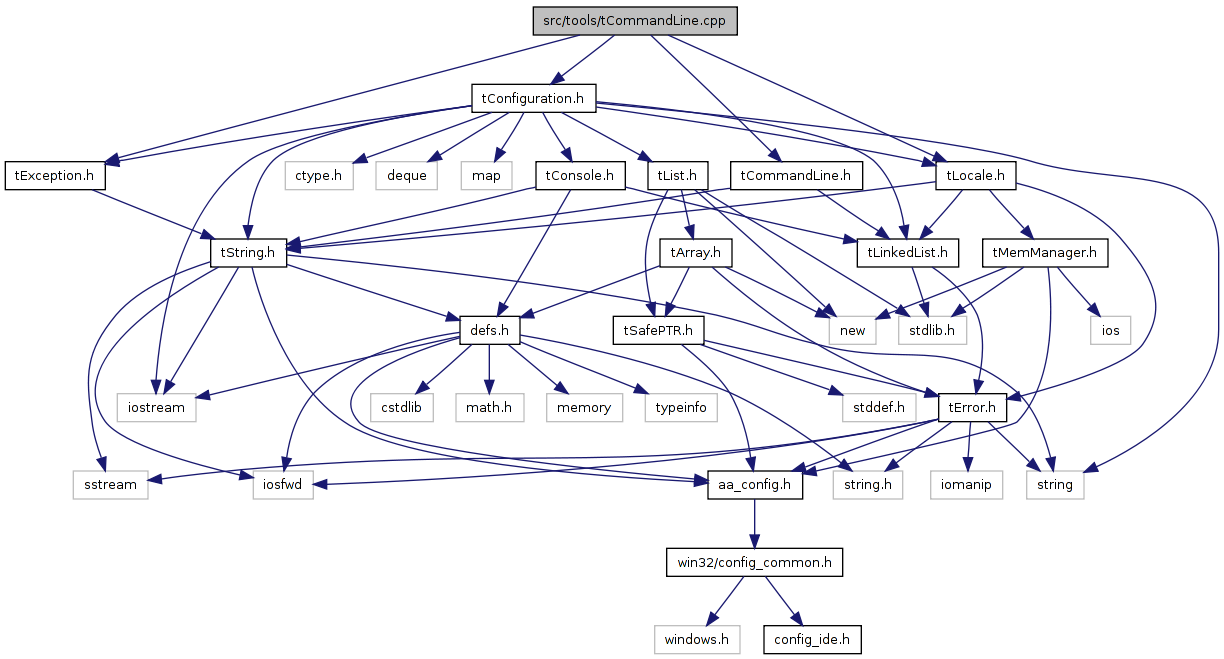
#include "tCommandLine.h"#include "tLocale.h"#include "tConfiguration.h"#include "tException.h"

Go to the source code of this file.
Defines | |
| #define | INLINE_DEF |
| #define | QUIT(x) { std::ostringstream s; s << x; quitWithMessage(s.str().c_str()); name_.Clear();} |
| #define | HELPAVAIL |
Functions | |
| static void | quitWithMessagePrepare (const char *message) |
| static void | quitWithMessage (const char *message) |
Variables | |
| static tCommandLineAnalyzer * | s_commandLineAnalyzerAnchor |
| #define HELPAVAIL |
| #define INLINE_DEF |
Definition at line 44 of file tCommandLine.cpp.
| #define QUIT | ( | x | ) | { std::ostringstream s; s << x; quitWithMessage(s.str().c_str()); name_.Clear();} |
Definition at line 77 of file tCommandLine.cpp.
Referenced by tCommandLineData::Analyse(), and tCommandLineParser::GetOption().
| static void quitWithMessage | ( | const char * | message | ) | [static] |
Definition at line 65 of file tCommandLine.cpp.
References tLocale::Clear(), and quitWithMessagePrepare().
00066 { 00067 tLocale::Clear(); 00068 quitWithMessagePrepare( message ); 00069 throw 1; 00070 00071 // tGenericException( message, "Command Line Parsing Error" ); 00072 // exit(1); 00073 }

| static void quitWithMessagePrepare | ( | const char * | message | ) | [static] |
Definition at line 48 of file tCommandLine.cpp.
References tLocale::Clear(), and NULL.
Referenced by tCommandLineData::Analyse(), and quitWithMessage().
00049 { 00050 #ifdef WIN32 00051 #ifndef DEDICATED 00052 #define USEBOX 00053 #endif 00054 #endif 00055 00056 #ifdef USEBOX 00057 int result = MessageBox (NULL, message , "Message", MB_OK); 00058 #else 00059 std::cout << message; 00060 #endif 00061 00062 tLocale::Clear(); 00063 }


Definition at line 46 of file tCommandLine.cpp.
 1.5.4
1.5.4